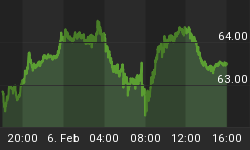July 30, 2009
The U.S. Dollar started out strong on Wednesday and managed to hold on to its gains against all major Forex markets. Weakness in the Shanghai Composite Index overnight helped put a little fear in traders seeking better returns in higher yielding assets. This triggered the initial strength in the Dollar but it was weakness in U.S. equity markets which fueled the selling pressure the rest of the day.
Weakness in the Euro and the British Pound was triggered by bearish technical chart patterns. Traders also picked tops in the Canadian, New Zealand and Australian Dollars, signaling that perhaps longs were ready to book their profits.
Equity market action should continue to control the direction of the foreign currency markets until central bank activity picks up again early next month.
The EUR USD confirmed yesterday's closing price reversal and in the process changed the main trend to down on a trade through 1.4119. The hard sell-off stopped at 1.4007 as this currency pair completed a .618 retracement of the 1.3832 to 1.4304 range.
If this market begins to build support at 1.4012 then look for the start of a short-covering rally back to at least 1.4156.
The weakness in the GBP USD today helped form a secondary lower top at 1.6585. The charts indicate that the next downside objective is 1.6283 to 1.6213. Fundamentally this market remains weak because of the poor economy and the wide budget deficit. If traders become more risk averse then look for more downside pressure.
The strong close in the USD JPY has put this market in a position to challenge the last swing top at 95.38. Looking at the last major range of 98.89 to 91.73, this market could run into some light selling at 95.31, but ultimately should breakout to the upside with 96.15 the next target.
The strong upside action today in the USD CHF may finally be an indication that this market is getting ready to break out of its 60-day range. The main bottom is 1.0590, but a new higher bottom has been formed at 1.0622. This is encouraging but ultimately this market has to break out over 1.0986.
Weakness in the equity and crude oil markets helped the USD CAD recover today. The lack of selling pressure following a break through the previous old bottom at 1.0783 helped trigger a short-covering rally. A new main bottom was formed at 1.0748. If stocks remain under pressure then look for the start of a retracement to 1.1230 to 1.1344.
There was no follow-through to the upside following a new high for the year yesterday in the AUD USD. Weakness in the Shanghai Composite Index overnight sent fear through the markets that maybe equities and commodity prices were overbought. Based on the developing downside momentum, look for a possible break to .8019 to .7945 before considering the long side.
The NZD USD looks a little toppy at current levels. The slowdown in demand for higher yielding assets will have a direct impact on the New Zealand Dollar. The chart formation suggests this market is in a position to rollover to the downside. Negative news out of China regarding commodities and equities could hurt the New Zealand economy. Look for the start of a break to .6412 to .6360.















